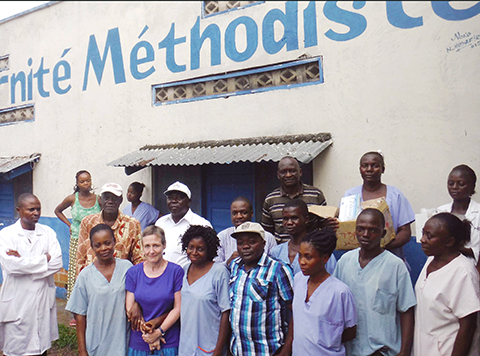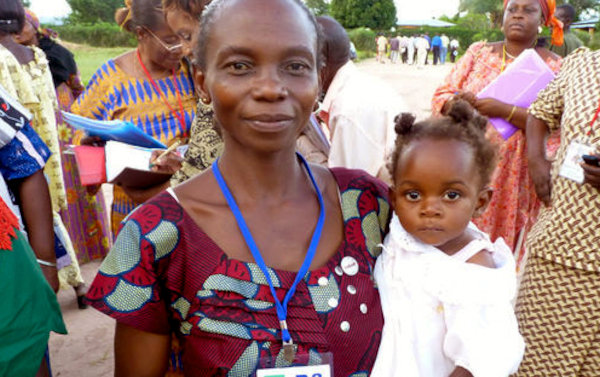United Methodist clinics fill the gaps in health services in many low-income countries.
KATHY GRIFFITH
OLUSIMBO IGE
General Bd of Global Ministries
“This is my sixth baby. This is also the first time I have learned about the importance of regular prenatal care visits and about the different methods of family planning. I am so glad because I want to stop having babies as my husband is finding it difficult to support me and my children, and the children of his other wives. Most of the time, I must provide for my children by myself. This is difficult as my petty trading is not doing well. I didn’t know where to get the information; the hospital staff have been very helpful. My family has benefitted so much from this program; I pray that other people will benefit too.” (From a woman in a remote village in Northeast Nigeria.)
Family planning is recognized as one of the most cost-effective of all health preventions. It provides cost savings, from childbirth and prenatal health care, as well as savings on expenses to support a child through adulthood. Investing in family planning has clear economic benefits, allowing people to stay in the workforce and reduces dependents. The United Nations Population Fund reports that, “For every dollar invested in contraception, the cost of pregnancy-related care is reduced by $1.47.”
The proposed termination of U.S. funding for family planning services has stunned the global health and development community.

Motherhood should be a positive and fulfilling experience. Unfortunately, many women don’t share this joy: teenagers face a higher risk of complications and death as a result of pregnancy; mothers giving birth within two years of a previous delivery, often have health complications; women becoming pregnant multiple times experience increased risks. Contraception helps women to avoid unwanted births and to space pregnancies; protects women against sexually transmitted infections, including HIV/AIDS; prevents unsafe abortions; and provides other health benefits.
United Methodist clinics and hospitals are filling the gaps in reproductive health services in many low-income countries. These gaps will widen with reduced funds and will be daunting for other global health actors to fill.
Family planning benefits the health and well-being of women and families throughout the world. These benefits would be erased if U.S. assistance for international family planning and reproductive health programs is eliminated. We stand with General Board of Church and Society to advocate for continued funding for family planning services and commodities. Join us by urging your members of Congress to preserve access to and funding for family planning.
*Kathy Griffith is the program manager for the Global Health Unit’s Mother, Newborn, and Child Health program. Dr. Olusimbo Ige is the executive director for the Global Health Unit and interim executive director for the United Methodist Committee on Relief.
Last Updated on June 19, 2017

